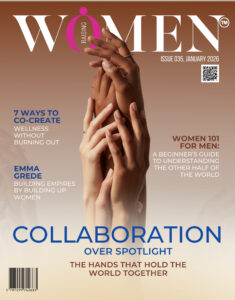By Daniel Agusi
In today’s evolving society, traditional gender roles are being challenged, leading to significant shifts in personal relationships. One notable dynamic is how men perceive and navigate relationships with successful women. This topic delves into men’s comfort levels with women’s success, the fine line between support and insecurity, and the changing gender dynamics in modern partnerships.
Are Men Truly Comfortable with Women Earning More or Being in Leadership Roles?
Historically, men have been viewed as the primary breadwinners, with societal norms placing them in dominant financial and professional positions. However, as more women ascend to leadership roles and achieve financial independence, these traditional dynamics are challenged. This shift prompts the question: Are men genuinely comfortable with their partners’ success?
Research offers varied insights. A study highlighted in *Psychology Today* reveals that a significant majority of men express a willingness to date women who are more intelligent, better educated, and earn more than they do. Specifically, 87% of men stated they would date a woman who was more intellectual, better educated, and made considerably more money than they did, while 86% sought a confident and self-assured partner.
However, societal conditioning and personal insecurities can sometimes lead to discomfort. Some men may feel their masculinity is threatened when their partner surpasses them professionally or financially. This discomfort isn’t universal but is prevalent enough to influence relationship dynamics.
The Fine Line Between Support and Insecurity in Relationships
Supporting a partner’s ambitions is fundamental to a healthy relationship. Yet, when a woman’s achievements overshadow her partner’s, it can inadvertently lead to feelings of inadequacy or insecurity in some men. This fine line between genuine support and underlying insecurity can manifest in various ways:
- Overcompensation: A man might overemphasize his achievements or assert dominance in other areas to balance perceived disparities.
- Withdrawal: Feelings of inadequacy can lead to emotional distancing, where the man becomes less communicative or supportive.
- Sabotage: In extreme cases, a man might undermine his partner’s success, either overtly or subtly, to restore a sense of equilibrium.
Open communication and mutual respect are crucial in navigating these challenges. Recognizing and addressing insecurities can strengthen the relationship and foster mutual growth.
Shifting Gender Dynamics in Modern Marriages and Partnerships
The landscape of modern relationships is continually evolving. With more women prioritizing careers and personal development, traditional gender roles are being redefined. This evolution brings both opportunities and challenges:
- Shared Responsibilities: Couples are increasingly adopting egalitarian approaches, sharing financial responsibilities, household chores, and childcare duties.
- Changing Masculinity: Men are exploring new facets of masculinity that embrace vulnerability, emotional intelligence, and partnership rather than dominance.
- Flexibility in Roles: There’s a growing acceptance of non-traditional roles, such as stay-at-home fathers or women as primary earners.
These shifts require adaptability and a willingness to challenge long-held beliefs about gender and success.
Real-Life Scenario: Navigating Success in Relationships
Consider the story of John and Lisa. Lisa, a corporate attorney, rapidly ascended the ranks of her firm, earning a substantial income and recognition in her field. John, a high school teacher, found immense satisfaction in his role but earned significantly less.
Initially, John’s pride in Lisa’s accomplishments overshadowed any personal insecurities. However, over time, societal comments and internal doubts crept in, leading John to question his value in the relationship.
Through open dialogue, couples’ therapy, and mutual support, John and Lisa addressed these insecurities. John embraced his passion for teaching, recognizing its intrinsic value beyond monetary measures, while Lisa ensured that their partnership remained balanced, celebrating each other’s successes equally.
Conclusion
The dynamics of relationships are complex and multifaceted, especially when traditional roles are challenged. Men’s comfort with successful women varies based on individual beliefs, societal influences, and personal insecurities. Navigating these relationships requires empathy, open communication, and a willingness to redefine traditional norms. As society continues to evolve, so too will the understanding and acceptance of diverse relationship dynamics, paving the way for partnerships built on mutual respect and shared aspirations.







